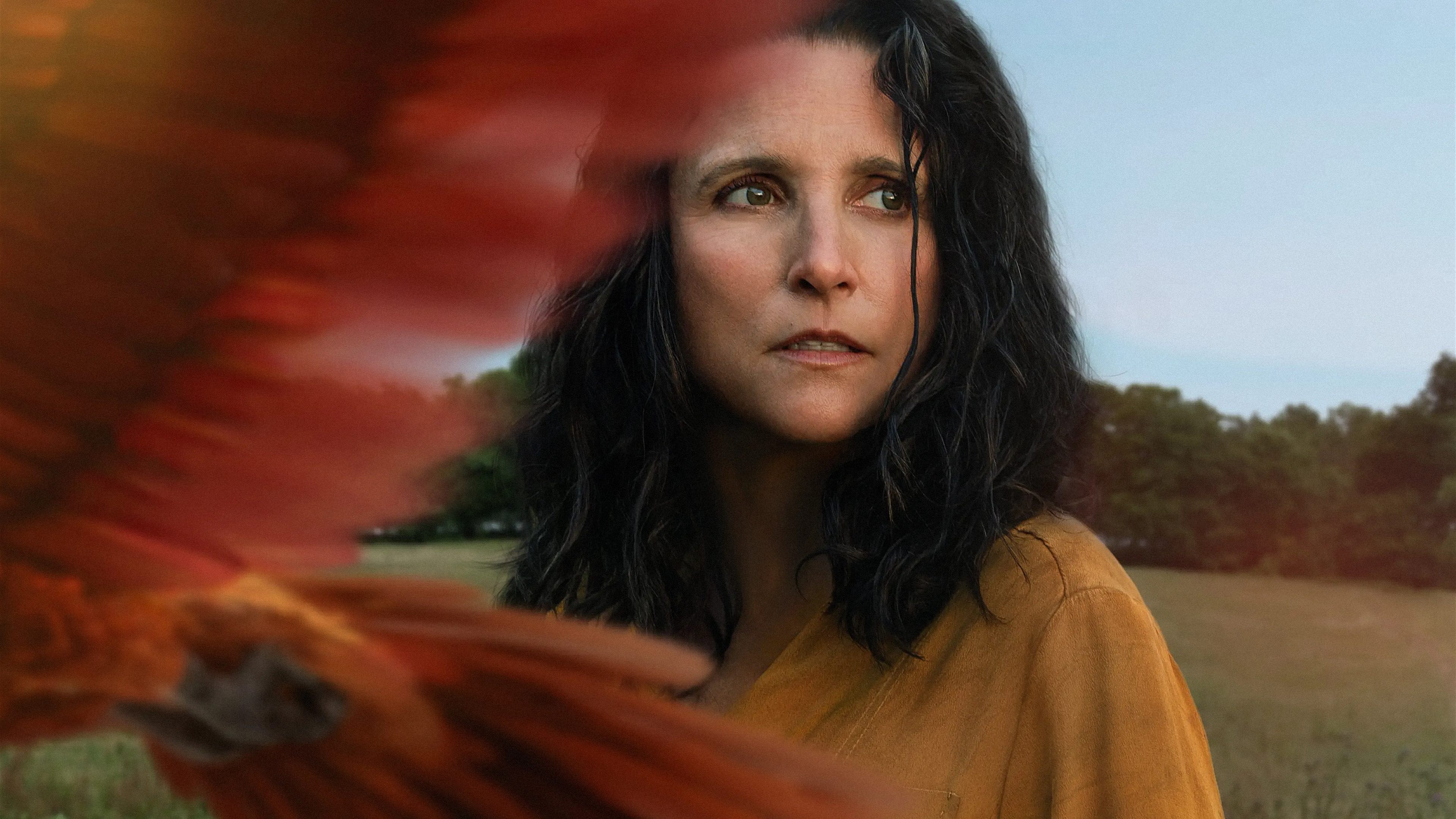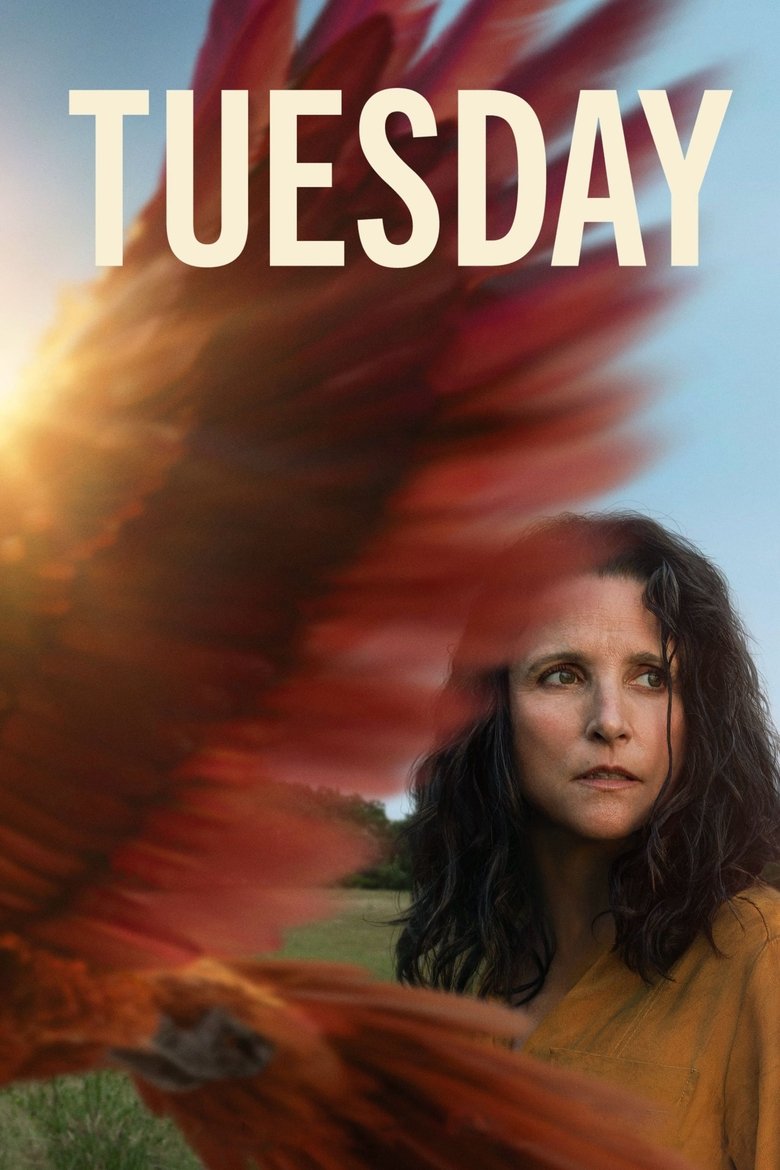Brent Marchant@Brent_Marchant
Fables often make for intriguing storytelling and engaging cinematic experiences. And such is the case for the debut feature from writer-director Daina Oniunas-Pusic, a whimsical yet profound tale about the acceptance of death (or, more precisely, the ability to move beyond that and learn how to make friends with death). It’s told through the experience of 15-year-old Tuesday (Lola Petticrew), a terminally ill adolescent whose mother, Zora (Julia Louis-Dreyfus), is struggling to accept the inevitable. Zora looks for excuses to avoid spending time with her daughter, because she’s unable to face the impending truth. But, when death itself suddenly and unexpectedly appears to claim Tuesday, taking the form of a talking, shape-shifting parrot (voiced by Arinzé Kene), Zora’s hand is forced. Somewhat surprisingly, Tuesday reconciles herself to her fate rather easily and subsequently ends up spending most of her remaining time trying to help her mother understand the nature of what’s about to happen – and what will unfold if it doesn’t, consequences with larger implications. In doing so, the film gets into some deeply meaningful material, presenting insights that most of us probably have never considered, let alone explored, shedding an entirely new light on the essence of death, as well as the tremendous burden it has placed on its ornithological messenger. The result is a truly moving story, one that deftly mixes joy and sadness, pathos and humor, and anger and sympathy, not only for mother and daughter, but also for death itself and the wider world of which we’re all a part. The narrative certainly gives viewers much to contemplate, introducing notions that might well raise eyebrows and perhaps even ruffle a few feathers (no pun intended) for those accustomed to more conventional interpretations of this subject. But, in the end, the picture provides a fresh, more mature take on these concepts. Admittedly, the pacing sags a touch in the middle, and the flow of the story may seem somewhat strange or a tad unfocused at times. What’s more, some may question the reasoning behind why death appears as a talking parrot (but, then again, why should it necessarily take some of the more familiar forms we have seen in other stories, such as the grim reaper, for instance?). The film features fine performances, most notably the best screen work Louis-Dreyfus has ever turned in. It also respectfully recalls material presented previously in such perceptively prescient tales as the moving Australian comedy-drama “Baby Teeth” (2019) and the classic Twilight Zone episode “Nothing in the Dark” (1962) featuring a very young Robert Redford. Still, the premise may strike some as odd, absurd or implausible, but, then, when have fables, fairy tales or opera librettos ever faithfully stuck to the tried and true? Suspend your disbelief for this one, and sit back and immerse yourself in what it has to say. You may never look at death the same way ever again.

